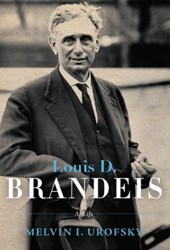Martin J. Siegel is a prominent attorney in Houston, Texas and the last clerk of Judge Irving R. Kaufman, who served on the federal bench in New York City. Kaufman is best known for presiding over the infamous 1951 trial of Ethel and Julius Rosenberg, both charged with passing secrets of the atomic bomb to the Soviet Union. (Ironically, the maiden name of Kaufman’s wife was Rosenberg.) The jury found the Rosenbergs guilty of what J. Edgar Hoover, the director of the Federal Bureau of Investigation, called “the crime of the century.” Kaufman imposed the death penalty on the pair, and they were executed on Friday, June 19, 1953, shortly before the onset of the Jewish Sabbath — despite or in spite of the fact that they were committed communists and atheists.
Kaufman’s sentencing was severely criticized at the time and would later come to be seen as unduly harsh. The Soviet Union, after all, was an ally of the United States when the crime was committed; and many believed that Ethel Rosenberg was a mere accessory to the deeds of her husband. Legend has it that Kaufman’s sentencing torpedoed any chances he had of achieving his ultimate ambition: to serve on the Supreme Court.
The trial and executions of the Rosenbergs remain controversial to this day, and they’ve spawned a vast historical and polemical literature. Judgment and Mercy is the latest contribution. It seeks to provide a complete portrait of Kaufman by distinguishing between the bad judge of the Rosenberg trial and the good jurist who championed a variety of causes dear to the hearts of progressives. These included broadening the insanity defense, defending civil liberties and the desegregation of neighborhood schools, prosecuting individuals accused of torture outside the United States, and encouraging prison reform. Siegel, to be sure, is not the first to emphasize this bifurcation in Kaufman’s biography. In 2019, twenty-seven years after Kaufman’s death, legal journalist Linda Greenhouse claimed that he had “dedicated his life to trying to make sure that the first paragraph of his New York Times obituary would not be ‘Judge Irving R. Kaufman, who sentenced the Rosenbergs to death.
That being said, it is doubtful whether the book will convince the more febrile critics of Kaufman to show him any sympathy. Burt Neuborne, a founder of the Brennan Center for Justice at the New York University School of Law, described Judgment and Mercy as a “relentless depiction of a deeply flawed American judge. More judgment than mercy, this book captures Irving Kaufman to a tee.” As Siegel notes, Kaufman could be a difficult person; and his initials, IRK, accurately describe the feeling he often aroused in fellow jurists, clerks, family members, and observers.
One interesting feature of the Rosenberg trial was its Jewish aspect. American Jews were horrified by the trial — coming only six years after the end of World War II — because it seemed to confirm the antisemitic charge, popular during the 1930s, that many Jews were communists and thus disloyal to the United States. This was despite the fact that Kaufman, as well as the prosecuting federal attorney and several members of his staff, were Jews. Jewish organizations and individuals divorced themselves from the Rosenbergs, emphasized that Stalin and his minions were hostile to Jews, Judaism, Jewish culture, and Israel, and stressed that Judaism and communism were incompatible. The American Jewish Committee even published a lengthy analysis of the trial, in defense of Kaufman’s sentencing. Despite American Jews’ fears, there was no evidence that the Rosenbergs’ Jewish background was a factor either in their arrest or in the jury’s guilty decision; and the case did not result in any antisemitic backlash. Whether or not Kaufman’s own decision sought to reassure Americans of the loyalty of American Jews — that remains pure speculation.





